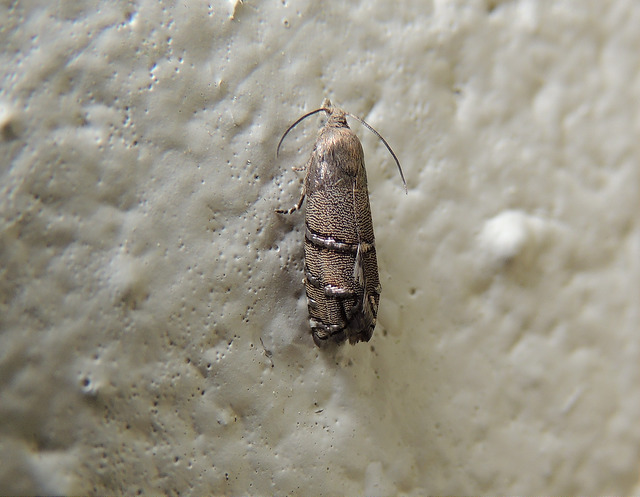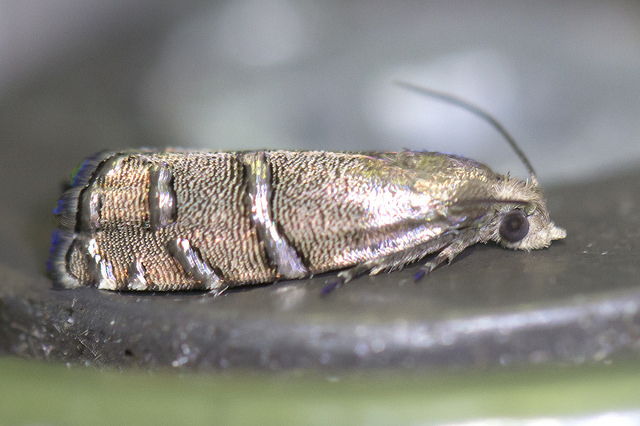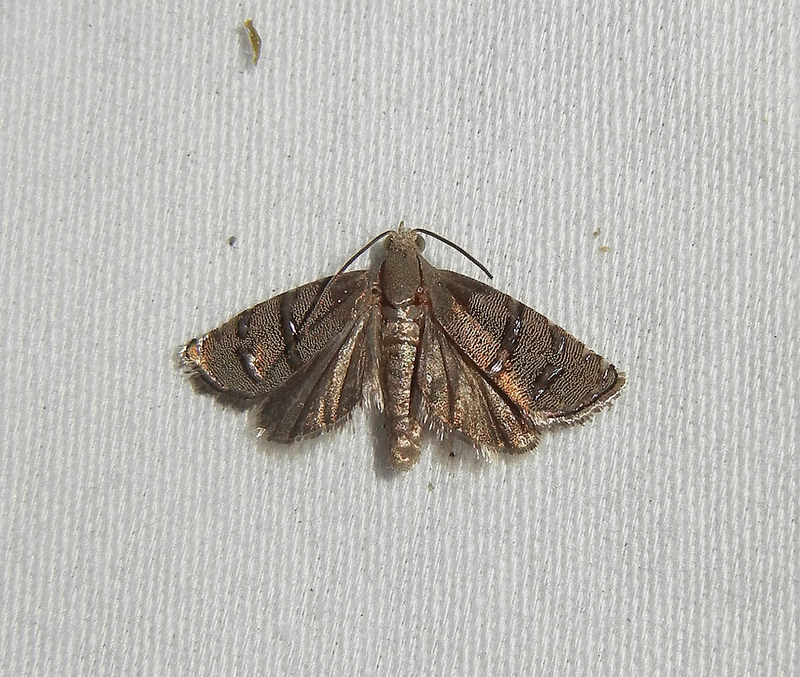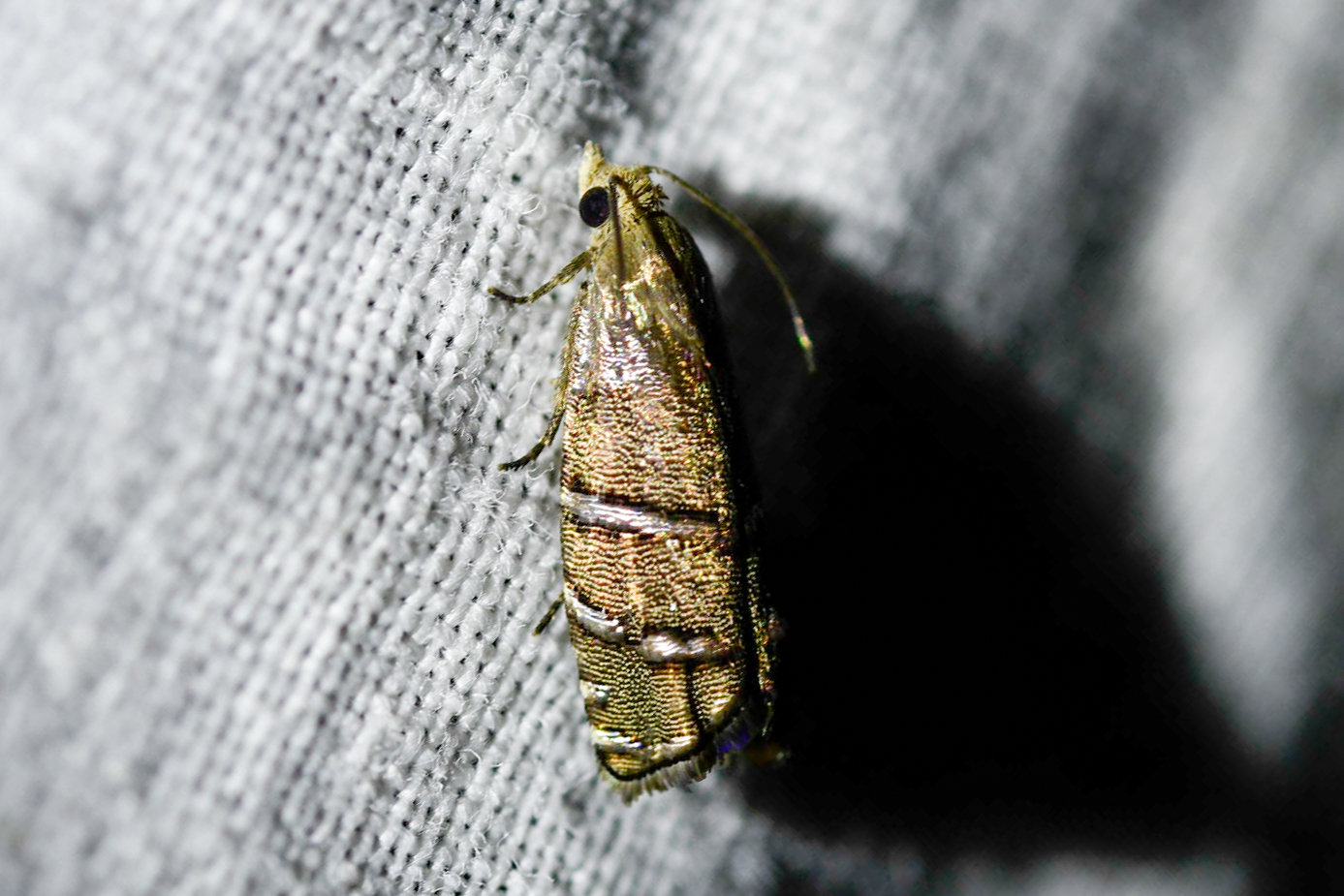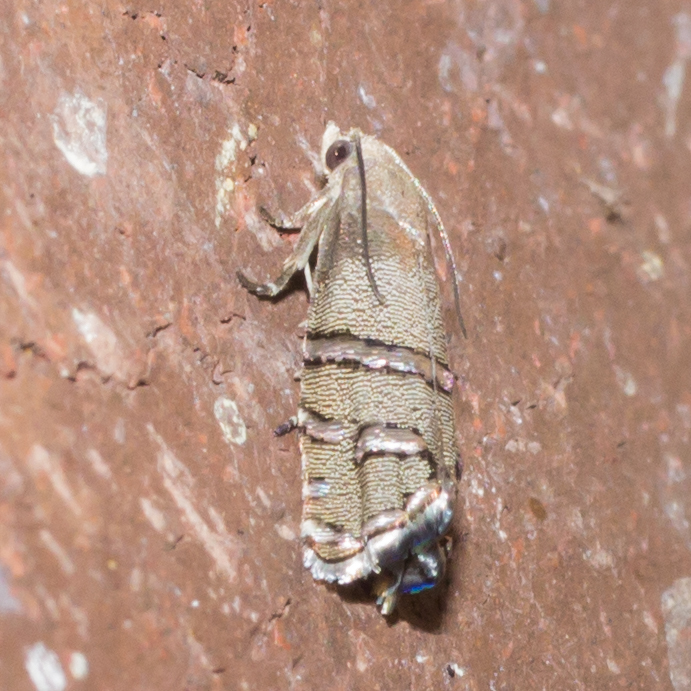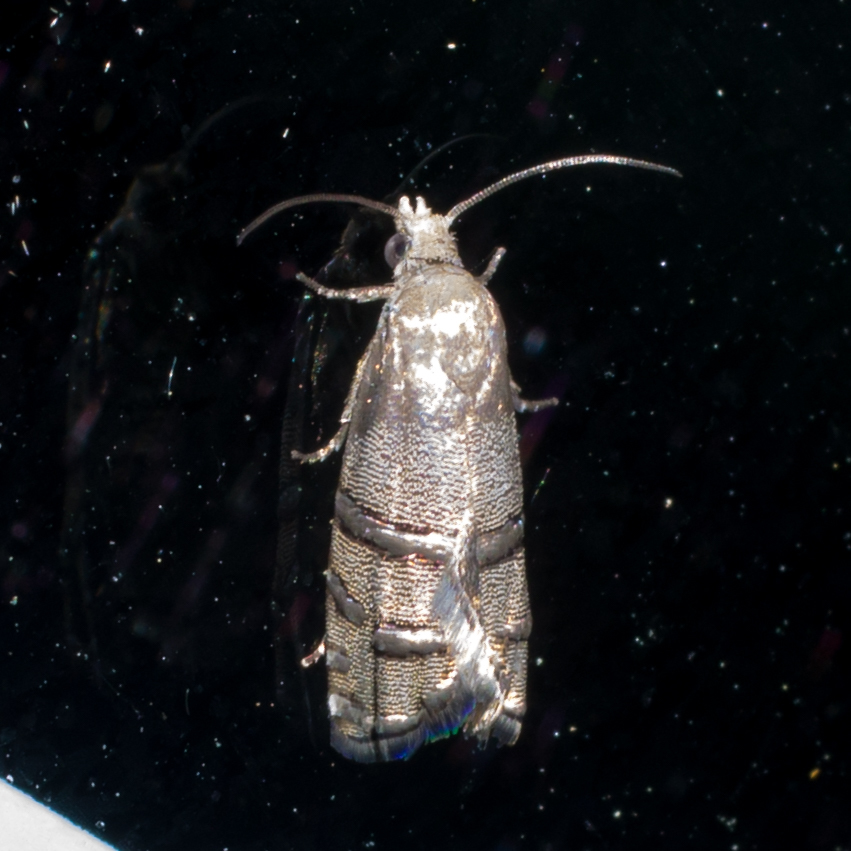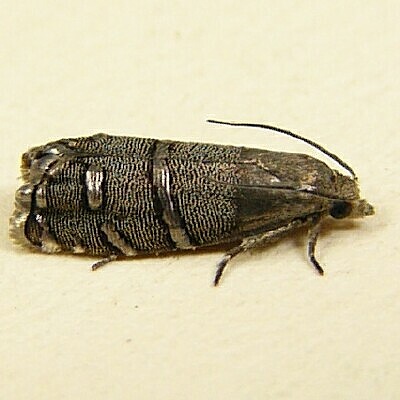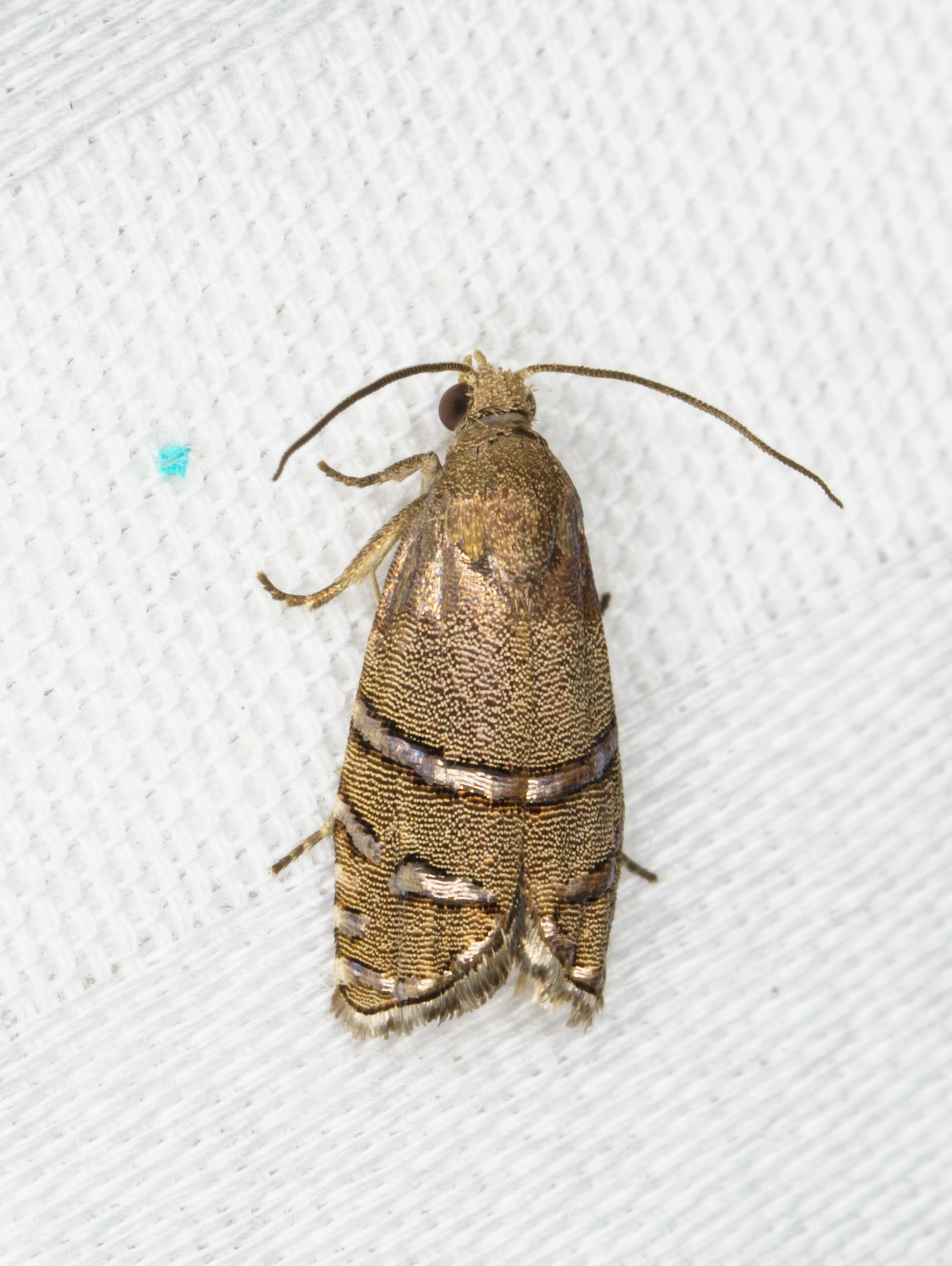Map Snapshot










28 Records
Seasonality Snapshot
Source: Wikipedia
| Longleaf pine seedworm moth | |
|---|---|

| |
| Live adult C. ingens photographed in Franklin County, Florida | |

| |
| Adult C. ingens specimen collected in New Hanover County, North Carolina | |
| Scientific classification | |
| Domain: | Eukaryota |
| Kingdom: | Animalia |
| Phylum: | Arthropoda |
| Class: | Insecta |
| Order: | Lepidoptera |
| Family: | Tortricidae |
| Genus: | Cydia |
| Species: | C. ingens
|
| Binomial name | |
| Cydia ingens (Heinrich, 1926)
| |
| Synonyms | |
| |
Cydia ingens, commonly known as the longleaf pine seedworm moth, is a species of moth in the family Tortricidae. It is found in southeastern North America. The caterpillars feed on the seeds of longleaf pine (Pinus palustris), slash pine (Pinus elliottii), and loblolly pine (Pinus taeda).[1][2][3] It was first described by American entomologist Carl Heinrich in 1926 as Laspeyresia ingens.[4]
Distribution and habitat
[edit]C. ingens has been recorded in Alabama, Florida, Georgia, Mississippi, North Carolina, and South Carolina, but probably occurs throughout the range of its preferred host plant, Pinus palustris.[2] It can be found in pine forests and coastal plains where its hosts are present.[3]
Description
[edit]Adult C. ingens are grayish-brown, similar in appearance to Cydia toreuta, with a wingspan of approximately 17–20 mm (0.67–0.79 in). The head is a dirty white color. The forewings are ashy-brown with several metallic bars that are edged with black (one of which is usually broken into a dorsal and ventral bar) and a conspicuous black line running along the wingtip, which is fringed with silver. The hindwings are a smoky-fuscous color with a paler fringe. Larvae are whitish and grub-like.[2][3][4]
References
[edit]- ^ Loomis, Robert C.; Tucker, Susan; Hofacker, Thomas H., eds. (1985). Insect and Disease Conditions in the United States, 1979-83. General Technical Report WO-46. United States Forest Service. p. 26. doi:10.5962/bhl.title.94607. OCLC 1111160645 – via Biodiversity Heritage Library.
- ^ a b c "Cydia ingens (Heinrich, 1926) - Longleaf Pine Seedworm". Moths of North Carolina. North Carolina Division of Parks and Recreation and North Carolina Biodiversity Project. Archived from the original on February 1, 2024. Retrieved February 1, 2024.
- ^ a b c Baker, Whiteford L. (1972). Eastern Forest Insects. Miscellaneous Publication No. 1175. United States Forest Service. p. 373. doi:10.5962/bhl.title.65893. LCCN 76607316. OCLC 707339285 – via Biodiversity Heritage Library.
- ^ a b Heinrich, Carl (1926). "Revision of the North American Moths of the Subfamilies Laspeyresiinae and Olethreutinae". Bulletin. 132. United States National Museum: 63. ISSN 0362-9236. LCCN 16000686. OCLC 7347194 – via Biodiversity Heritage Library.
